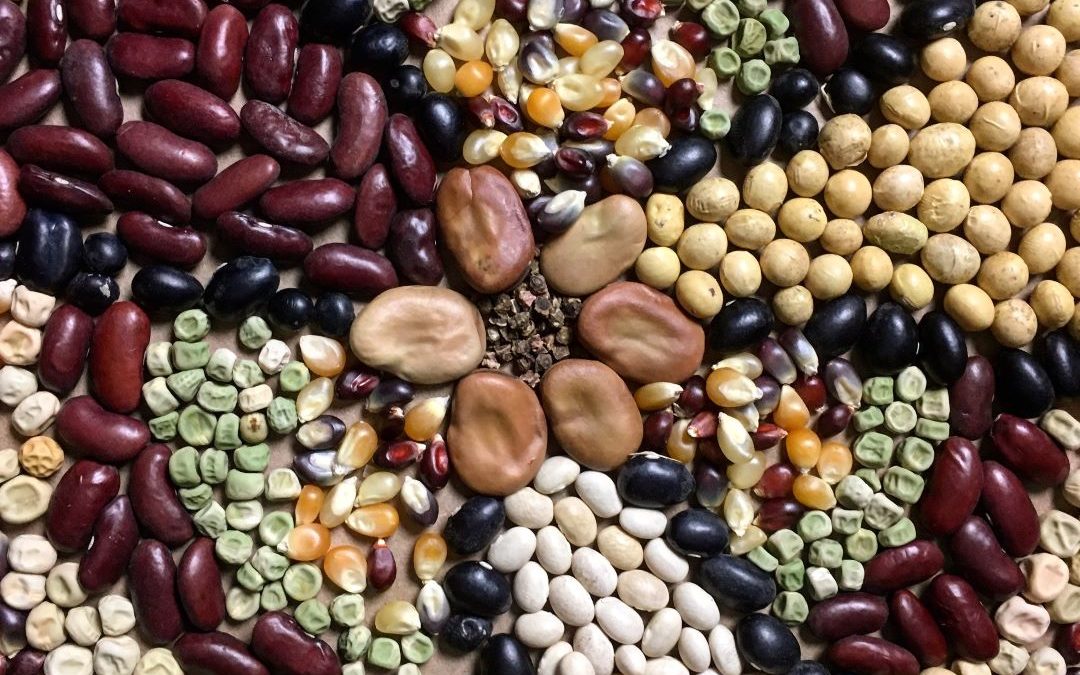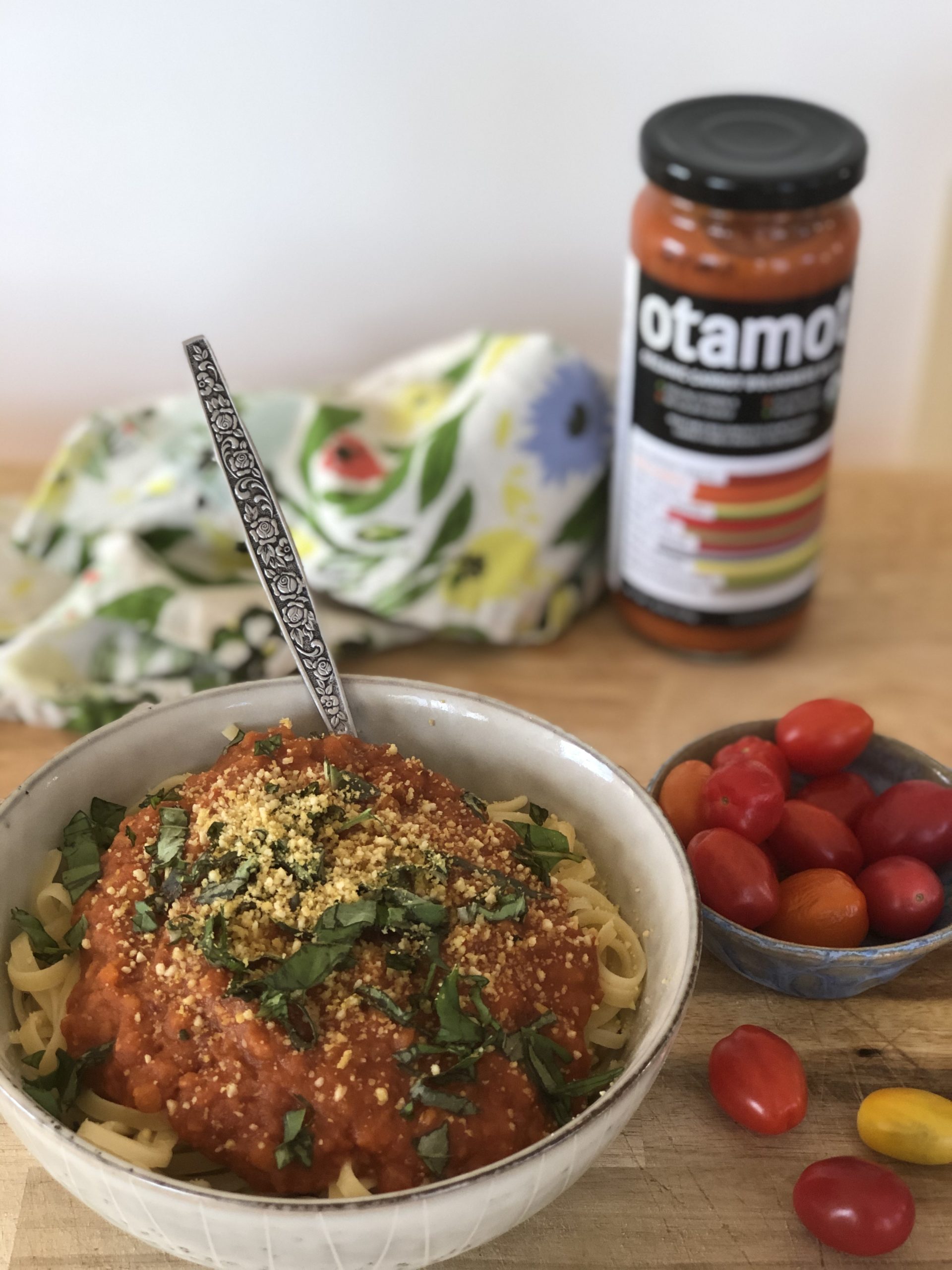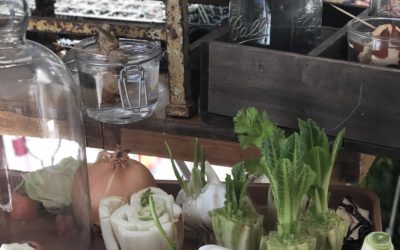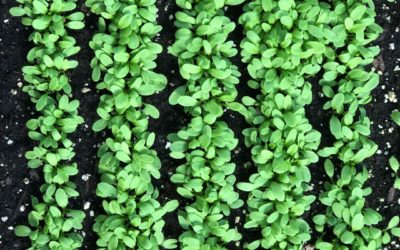Every seed has a story to tell. One tomato seed sown in your garden may reveal the rich ancestry of an heirloom and another seed the narrative of 20th century commercial agriculture.
Heirloom seeds have been passed down from generation to generation. Each grower, in turn, has sown the seeds, cultivated the tomato, and selected ripe fruit from which to harvest seeds to replant. In doing so, intentionally or not, the gardener has become a plant breeder. Have they chosen a tomato that was larger than the rest for meaty flavorful sandwich slices? Or, did they save seed from a tomato vine whose fruit ripened the earliest, or withstood a blight? With heirloom seeds, which are open-pollinated and breed true-to-type, the sowers add another chapter to the story.
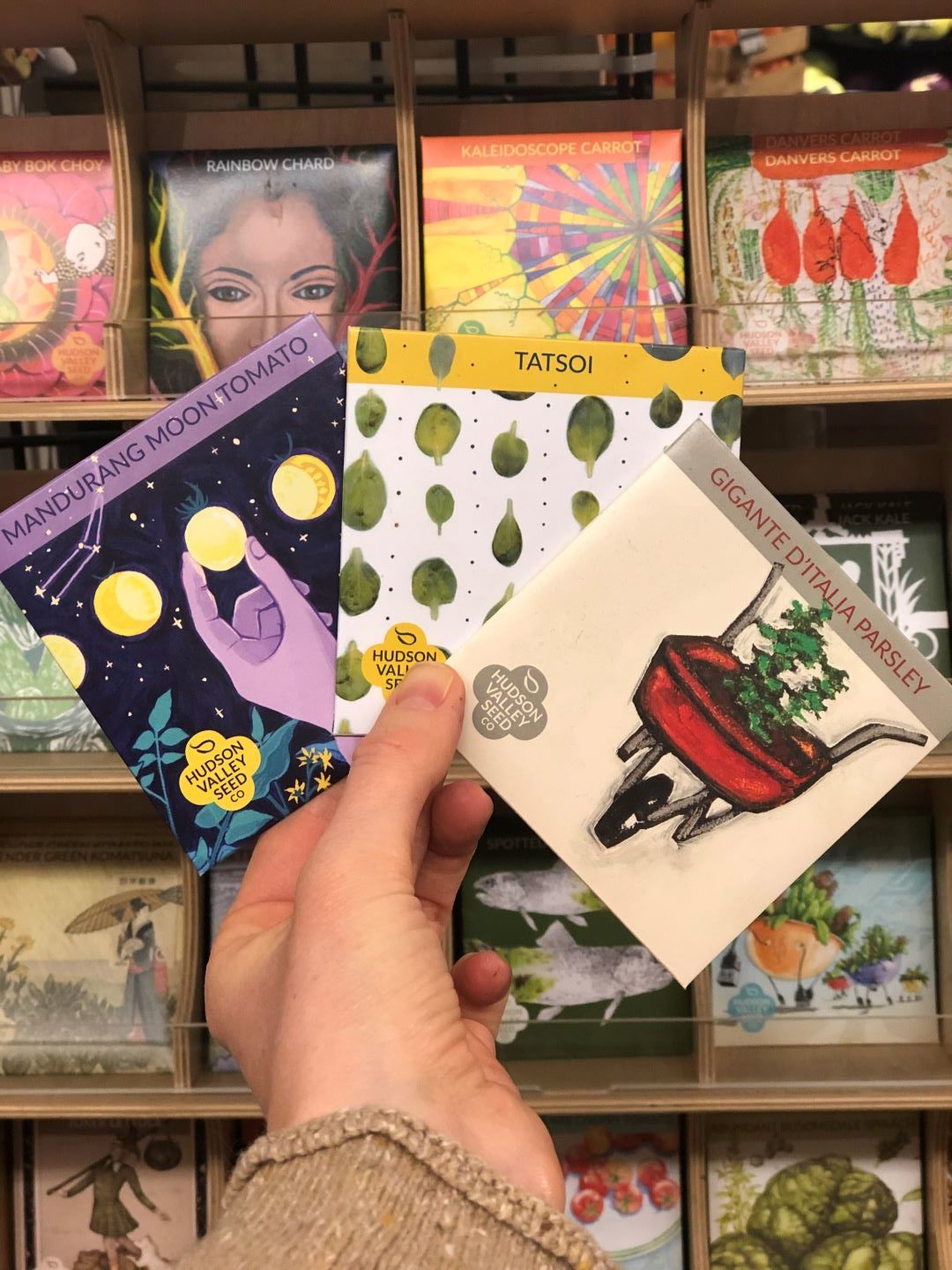
The vegetable, flower, and herb seeds available today have different origins. Hybrid seeds, resulting from a static cross between two distinct parent plants, were introduced in the 1920s. Hybrids were overwhelmingly adopted in agriculture due to their perceived vigor and uniformity. They now dominate the seed scene—and are largely bred for commercial traits such as increased yields, compatibility with mechanized harvest, and packability for long-distance shipping.
The world’s food supply is dependent on hybrid varieties and the farmers who grow them must continually buy seed year after year. Hybrid seeds do not breed true-to-type and therefore cannot be saved. This has contributed to the consolidation of the seed industry and the staggering loss of crop diversity on a global scale.
We’re excited to offer an array of heirloom seeds from Hudson Valley Seed Company, based out of New York’s Hudson Valley. They celebrate the unique story of the varieties they offer through their beautiful artist-commissioned seed packets, called art packs. This spring you can help promote biodiversity by choosing to grow open-pollinated and heirloom seed—adding your chapter to the story.
More New Morning News
Plant-Based Goodness!
Starting on a plant-based journey can be pretty intimidating, but rest assured, there’s no need for an all-or-nothing mentality. Even eating plant-based one night a week has great environmental impact. I usually start off by picking a vegetable or two and then go from there.
Re-Grow Your Greens!
It’s been a lot of fun to see the leaves pop from my organic potato sprouts, watch new little romaine leaves emerge, and dream about the avocado tree that will be big and strong and bearing foliage long after the current woes and worries are behind us, and as we begin to heal as individuals and communities.
Calling All Gardeners: It’s Time to Start your Seeds!
Spring is officially here and the last frost of the season is looming near. It’s time to start seeds! In Connecticut, many vegetables require too many days to fully mature if sown as seeds directly in the ground.

